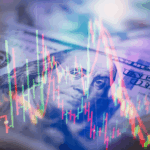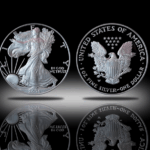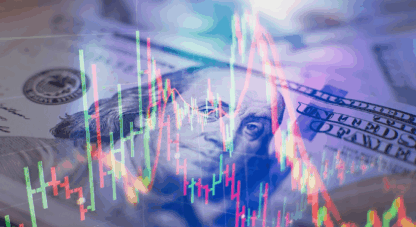Winston Churchill called the Soviet Union “a riddle wrapped in a mystery inside an enigma.” He was being kind. He could have called it brutality wrapped in a torture chamber inside a killing field.
China’s worse. It’s no longer politic to say so because we’ve been on such uneasily dear terms with the country for so long, but blood has flowed there “as high as the horses’ bridles for a distance of 1,600 stadia,” to appropriate the words of St. John—no amateur eschatology intended.
Still, it’s a massively large country as measured by influence. The West has collectively transferred much of its wealth to China in a misguided attempt to make it play nice, and has created potentially the best enemy money can buy. Now, when China sneezes, the rest of the world catches cold.
Importantly, the days of Deng Xiaoping’s influence are over. The capitalism with Chinese characteristics that brought dizzying wealth to the country has been roundly subordinated to Xi Jinping’s resurgent socialism with Chinese characteristics—communism pure and simple, complete with communism’s defining characteristics: brutality, inefficiency, and pugnacity.
So where are we in this regard? China has immense strength, problems, abilities, arrogance, and ambition—just like America, but without some of America’s rapidly waning redeeming qualities. China’s future is likely intertwined with our own, for better or for worse.
In that light, and with a particular focus on China’s political and economic issues, David and Doug both focus this week on the PRC. What do its ambitions and problems portend for the rest of the world? Their analysis is rich and deep, moving well past the sound bites and caricatures offered by the major media.
Key Takeaways:
- Eastern ambitions
- To deny a bubble doesn’t belie it
- This is your wake up call
- Summer may bring opportunity for gold buyers
The McAlvany Weekly Commentary: What if China Ruled the World?
China analysis these days tends to take the form of a false dilemma—either the country is no problem whatsoever or China is anxious and able to destroy the U.S. tomorrow. The truth is somewhere in between—perhaps closer to the latter than the former, but still highly nuanced and worthy of analysis rather than caricature. Analysis is what David and Kevin deliver in this installment of the Commentary. They begin with China’s Document Nine, published in 2013 and highly deterministic in character and influence on Chinese government policy. It contains seven nos—things like “no to promoting constitutional democracy, no to universal values,” and five more. “This is very powerful since Document Nine is their marching orders.” Much of this information is drawn from historian Paul Tucker’s new book, Global Discord. David is scheduled to interview Paul on an upcoming MWC, so this week’s program both features some highlights from the book and sets up the interview. “Tucker suggests that the current discord between West and East will extend for decades to come. This is, again, potentially civilizational far beyond the flashpoint of conflict we might see with Taiwan. Certainly, not limited by the Chinese cartographers’ nine-dash line. There is a civilizational conflict afoot, and China as a rising power, or maybe even, if you want to go back to their history, a returning power, objects to the way things are done.” Get ready for another great interview in a few weeks, but don’t miss its prelude in the current episode.
Credit Bubble Bulletin: Thesis Corroboration
Though always wide-ranging in nature, Doug’s weekly wrap-up begins its most recent contribution by focusing on its titular subject matter. “Markets for the most part corroborated the ‘higher for longer’ and rising global yields thesis. Ample volatility supports the heightened currency instability thesis, with the yen, renminbi, and EM currencies all in the cross hairs this week.” He then proceeds to give the details on equities volatility, bond market ennui, and currency woes that are affecting nations across the globe. On the latter topic, he segues to a discussion of China’s currency difficulties and then to its broader problems. In regard to the real estate fiasco, he notes that, “I’ve been chronicling the great Chinese apartment Bubble for years now. It has followed the typical pattern. The Bubble inflates for so many years that Bubble Analysis is completely discredited. At the height of exuberance, the doomsayers and their bearish analysis were viewed as nothing more than ridiculous extremism. And I’m increasingly confident that the bursting China Bubble will follow the typical course I’ve witnessed in three decades of analyzing Bubbles: things will prove worse than even the most bearish analysis.” This is treasure (not tempest) in a teapot. In one paragraph, he describes human nature writ large as it applies to the waxing and waning of obsessional large-scale trends.
Hard Asset Insights: It Hasn’t Hit Yet
Some of the largest commercial ships have a turning radius of over five miles. The only thing slower to turn is the mindset of the Western investor. Still, it’s happening. Morgan has been chronicling the oh-so-slow turnabout of Western sentiment on gold. Many investors are still liquidating their gold holdings, but the light of understanding is beginning to dawn. Adept at ferreting out the most indicative high-level discourse on financial, economical, and political events, Morgan features some incredible quotations this week. Clearly, the good ship Western Economy’s captain and crew see the icebergs ahead and have the rudder slammed hard a-port. Big-name investors see the ice. Even Janet Yellen sees it. Morgan’s analysis of their comments is superb. But the passengers are still waking up. The move into gold is still in its early stages. Morgan notes that, “major commodity producers are no longer automatically recycling their dollar-denominated commodity and oil revenues back into US Treasurys as a reserve asset.” Goldman Sachs’ former Global Head of Commodities Research says instead, and “for the first time ever, that dollar recycling is not occurring. And what is replacing it? I like to call it gold recycling.” These developments are huge, and are in their very early days. You would be very, very wise to read this letter each week.
Golden Rule Radio: Subtle Shifts
All three hosts are in the studio this week as they note “a sea of red” in markets far and wide. Precious metals, commodities, equities, and markets of all stripes saw declines for the week. The lone exception was the dollar. Despite this short-term pullback, precious metals in particular remain at high levels—especially silver and gold. This presents a good news/bad news scenario, as Miles points out. It’s nice if you’re holding gold, not so nice if you have to buy groceries (given that all these developments have been driven by high inflation). Miles notes that the dollar has remained within a relatively stable trading range for many months now, which gives a false picture of both the economy in general and the gold market in particular. For ratio traders, the hosts note that the silver:gold ratio is now in the 73:1 vicinity, which bodes well for advantageous trades from silver to gold in the future. Tory conjectures, and Rob agrees, that global tensions could ease this summer leading into the election, and then increase again afterward. This would likely allow gold to give back some of its gains for a time and allow a buying opportunity prior to resumed upward pressure.















